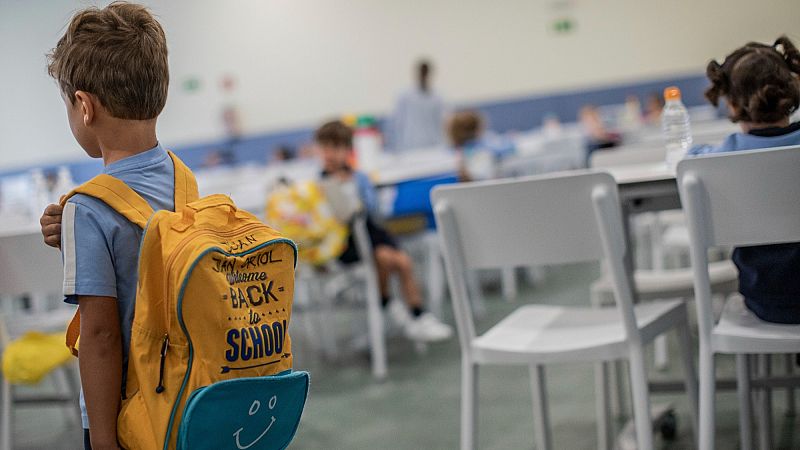
Spain's school cafeterias are getting new, healthier menus in an effort to reduce childhood obesity.
The country’s Council of Ministers adopted a royal decree this week that mandates schools serve local produce and bans some fried and fatty foods, which officials said are important steps to make healthier foods available to children from lower-income families.
According to a 2023 report, 46.7 per cent of Spanish students aged 6 to 9 whose families earn less than €18,000 per year are overweight, compared with 29.2 per cent among those from wealthier families.
Other research shows that childhood obesity in Spain is tied to socioeconomic status, poor diet, and sedentary lifestyles.
As part of the new directive, schools are required to offer fresh fruit and vegetables every day – 45 per cent of which must be seasonal – while sugary drinks and junk foods will be banned from vending machines, fish and brown rice or pasta must be served at least once per week, and the equivalent of two meals per month must be organic.
The plan also recommends that schools serve more beans and use olive oil or high-oleic sunflower oil to cook fried foods, which can only be offered once per week if they are freshly prepared and once per month if they are pre-cooked meals like pizzas and empanadas.
The regulations are needed because Spanish schools are currently falling far short of national recommendations, the government said in a statement, with 74 per cent of cafeterias and 70 per cent of vending machines failing to meet nutritional standards.
Pablo Bustinduy, Spain’s consumer and social affairs minister, said the rules apply to public, state-subsidised, and private schools, including early childhood centres, primary schools, vocational training, and more.
Among people 16 and older in Spain, 45.4 per cent are overweight or obese, a lower rate than most other countries in the European Union. But given childhood obesity remains a challenge, that rate could increase.







